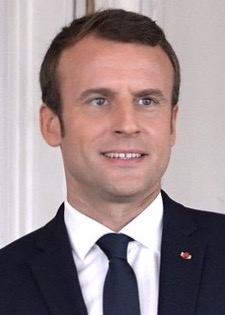Macron Condemns Trump's Tariff Threat Amid EU Leaders' Concerns

In a significant escalation of transatlantic tensions, French President Emmanuel Macron publicly expressed his "very strong disapproval" of U.S. President Donald Trump’s announcement to impose a 30% tariff on goods imported from the European Union (EU), effective August 1, 2025, unless a trade agreement is reached. The announcement, made on July 13, 2025, has prompted a wave of reactions from various EU leaders, who are now considering their options in response to Trump's provocative stance.
The tariff threats, characterized by many as a declaration of trade war, have disrupted ongoing negotiations between the EU and the United States. According to Ursula von der Leyen, President of the European Commission, the EU is committed to preserving its interests and is prepared to implement "proportionate countermeasures" if necessary (European Commission, 2025). This statement underscores the EU’s determination to counteract what it perceives as aggressive trade tactics from the U.S. government.
Macron’s strong disapproval reflects a broader sentiment among European leaders who had anticipated a less severe tariff increase. Macron stated, "The 30% tariff rate is unexpected after weeks of negotiations that were made in good faith" (Macron, 2025). He urged the European Commission to mobilize all available tools to counter the proposed tariffs, aligning with the sentiments expressed by other key figures, including Brando Benifei and Bernd Lange from the European Parliament, who called for immediate countermeasures on goods and services (European Parliament, 2025).
The implications of Trump’s tariff threat extend beyond just diplomatic relations; they pose a significant risk to the European economy. Dan O’Brien, Chief Economist at the Institute of International and European Affairs, noted that a 30% tariff could lead to a "significant trade destruction effect" on EU exports to the U.S. (Institute of International and European Affairs, 2025). Industries heavily reliant on exports, such as German automotive manufacturers, Italian wine producers, and Irish pharmaceutical companies, are particularly vulnerable to the economic fallout.
In a more tempered response, Italian Prime Minister Giorgia Meloni cautioned against escalating tensions, emphasizing the need for negotiations to avoid a full-blown trade war. Meloni stated, "It would make no sense to spark a trade war between the two sides of the Atlantic" (Office of the Prime Minister of Italy, 2025). This perspective highlights the divide among EU leaders regarding how best to respond to Trump’s aggressive trade posture.
The situation is further complicated by Trump’s warning that any retaliation from the EU would be met with corresponding U.S. tariff increases, heightening the stakes for all parties involved. The potential for a wider trade war looms large, as economic experts warn of severe repercussions should tariffs escalate.
Mexican President Claudia Sheinbaum, while confident in her country’s negotiations to stave off similar tariff threats, reflects the broader international concern regarding the U.S.'s protectionist policies. Sheinbaum indicated that Mexico is already engaged in talks to avoid the fallout from Trump’s trade decisions, demonstrating the global implications of the U.S. administration's approach (Government of Mexico, 2025).
As the August deadline approaches, the EU must navigate a delicate balance between defending its economic interests and seeking a diplomatic resolution with the United States. The outcome of this situation could redefine U.S.-EU trade relations for years to come, with far-reaching effects on global trade dynamics. The international community will be closely monitoring developments as both sides prepare for what could be a pivotal moment in transatlantic relations.
In light of these tensions, experts emphasize the need for diplomatic engagement and constructive dialogue to prevent a trade war that could have lasting economic consequences for both regions (Institute of International and European Affairs, 2025; European Commission, 2025). As negotiations continue, the stakes remain high, and the world watches closely to see how this conflict will unfold.
Advertisement
Tags
Advertisement




